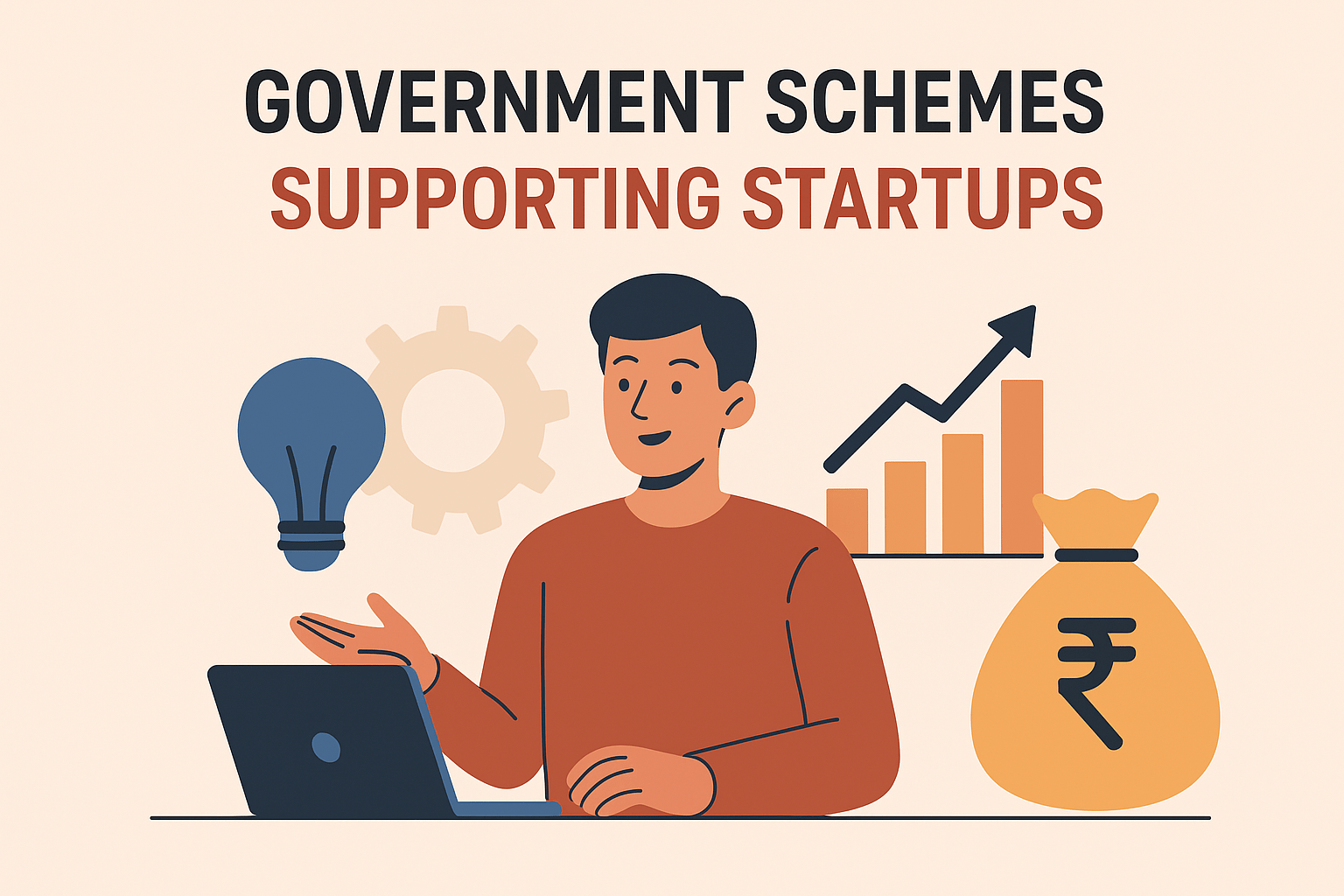India is one of the fastest-growing startup hubs in the world, with young entrepreneurs building innovative solutions across technology, healthcare, agriculture, finance, and more. To encourage this culture of innovation, the Government of India has launched several schemes and programs that provide financial assistance, mentorship, tax benefits, and incubation support to startups.
In this article, we’ll explore some of the most important government schemes supporting startups in India.
1. Startup India Initiative (2016)
Launched by the Government of India in January 2016, Startup India is the flagship program designed to boost entrepreneurship in the country.
Key Benefits:
- Tax exemption for 3 consecutive years.
- Easy company registration through Startup India portal.
- Access to networking opportunities, workshops, and investor connects.
- Self-certification for compliance under labor and environment laws.
This initiative has been the backbone of India’s startup ecosystem.
2. Fund of Funds for Startups (FFS)
Managed by SIDBI (Small Industries Development Bank of India), this scheme provides funding support to startups indirectly. Instead of giving money directly to entrepreneurs, it invests in SEBI-registered Alternative Investment Funds (AIFs), which then invest in startups.
Highlights:
- Corpus of ₹10,000 crore.
- Encourages private investors to co-invest in startups.
- Helps startups access early-stage and growth-stage funding.
3. Startup India Seed Fund Scheme (SISFS)
Introduced in 2021, the Seed Fund Scheme provides financial assistance to startups in the idea/prototype stage to help them grow into full-fledged businesses.
Eligibility:
- Startup must be recognized by DPIIT.
- Should not have received more than ₹10 lakh of financial support already.
Support Offered: - Up to ₹20 lakh for idea validation and prototype development.
- Up to ₹50 lakh for scaling and market entry.
4. Atal Innovation Mission (AIM)
The Atal Innovation Mission, launched by NITI Aayog, aims to foster innovation and entrepreneurship among students and young innovators.
Components include:
- Atal Tinkering Labs: Innovation spaces in schools.
- Atal Incubation Centers: Support for startups with infrastructure, mentorship, and networking.
- Atal New India Challenges: Funding support for startups solving social/economic challenges.
5. Credit Guarantee Fund Trust for Micro and Small Enterprises (CGTMSE)
One of the biggest hurdles for startups is access to credit. To solve this, the government provides collateral-free loans under CGTMSE.
Features:
- Loans up to ₹2 crore without collateral.
- Applicable to both new and existing startups.
- Encourages banks to lend to entrepreneurs with reduced risk.
6. Pradhan Mantri Mudra Yojana (PMMY)
Under this scheme, entrepreneurs can get collateral-free loans of up to ₹10 lakh to start or expand small businesses.
Types of Loans:
- Shishu (up to ₹50,000)
- Kishore (₹50,000 to ₹5 lakh)
- Tarun (₹5 lakh to ₹10 lakh)
This is especially useful for small-scale startups and self-employed individuals.
7. Single Point Registration Scheme (SPRS)
Implemented by NSIC (National Small Industries Corporation), this scheme helps startups get government tenders more easily.
Benefits:
- Exemption from Earnest Money Deposit (EMD).
- Free issue of tender sets.
- Easier access to government procurement opportunities.
Conclusion
The Indian government is actively supporting entrepreneurship through these schemes, making it easier for startups to access funding, mentorship, and resources. Whether you’re just starting with an idea or looking to scale your business, these schemes can provide a strong foundation.
As India moves towards becoming a $5 trillion economy, the role of startups will be crucial, and government support will continue to be a major driving force behind their success.
